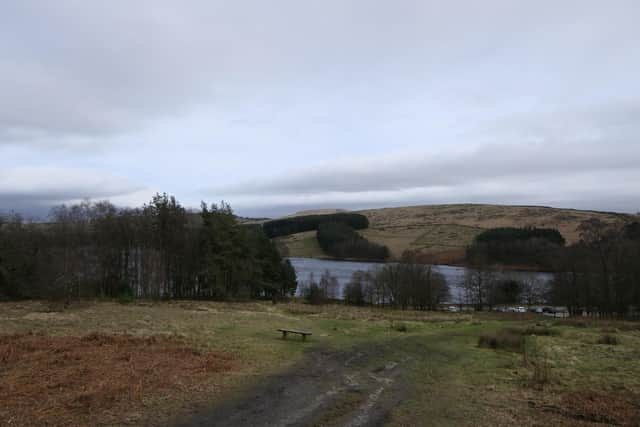Forestry England begins second phase of work to clear 97 hectares of diseased trees in Goyt Valley
and live on Freeview channel 276
Last summer, an aerial survey revealed an outbreak of Phytophthora ramorum, a pathogen which can rapidly kill oak and other tree species.
Forestry workers have since cleared 21 hectares of diseased trees in the upper valley, and they are now moving on to the southern section where a further 44 hectares will be felled by the end of the year.
Advertisement
Hide AdAdvertisement
Hide AdForester Dan Pincott said: “We’ve had to take swift action to respond to this natural emergency and fell these trees to stop this fungal disease spreading.
“Phytophthora can be transmitted on the wind as well as on boots, wheels and even muddy paws so the risk of it spreading is very real. Sadly, infected trees will gradually die anyway and by acting now we can start replanting sooner.”
In total around 97 hectares will need to be felled to remove the infected trees, with the timber to be used for fencing, construction and biomass.
Infected larch, sweet chestnut and rhododendron are being removed as they are known transmitters of the fungal disease.
Advertisement
Hide AdForestry England’s ecology team has surveyed the area so that the impact on wildlife and habitats is minimised, and have also mapped heritage such as the remnants of Errwood Hall, a 19th century shrine and the site of former gunpowder factory to ensure that they are protected.
Advertisement
Hide Ad

Once felling is complete, replanting will take about five years, with different trees carefully selected for the area’s current and future climate.
As well as some short-term changes to the landscape, visitors may notice paths have been diverted or temporarily closed while the work is taking place.
Operations manager Richard Topley said: “Most of the Goyt Valley will remain open for visitors, but forest operations can be dangerous, so it’s important for visitors to follow safety signs and diversions on footpaths and remember to keep off log stacks.”
Advertisement
Hide Ad“In these confusing and worrying times, local journalism is more vital than ever. Thanks to everyone who helps us ask the questions that matter by taking out a subscription or buying a paper. We stand together.” – Louise Cooper, editor.